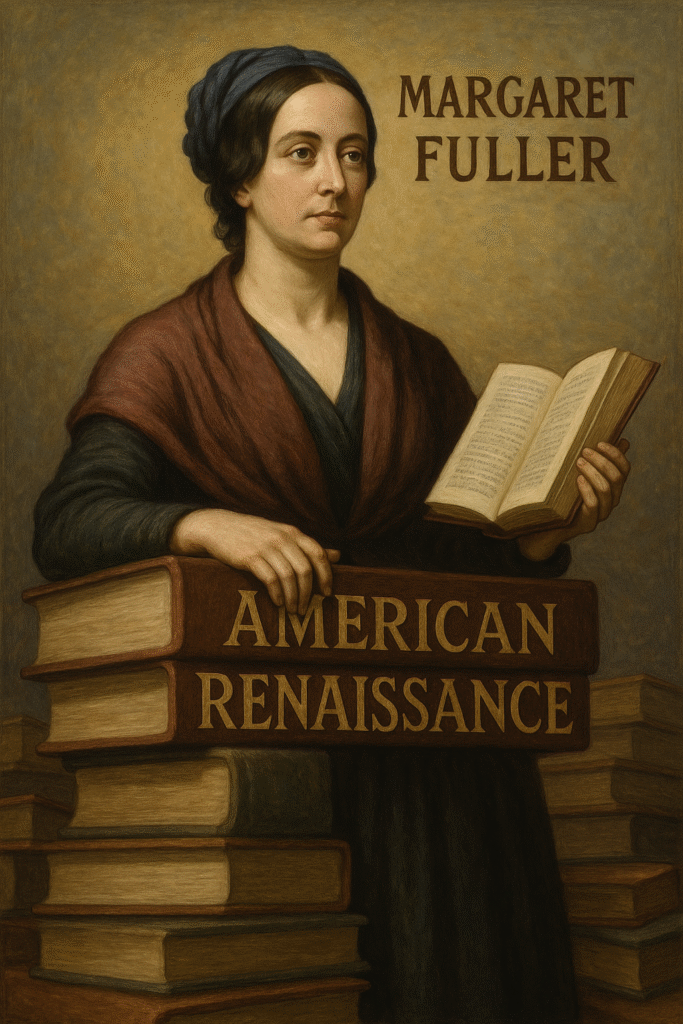Margaret Fuller as a Literary Giant
Margaret Fuller as a literary giant shaped the intellectual and feminist discourse of the American Renaissance. She was a bold voice for gender equality, social justice, and transcendental thought. Unlike many of her peers, she combined activism with intellect, forming bridges between literature and reform. She stood among the brightest minds of her time, leaving a lasting influence on American letters. Her legacy is visible in the works of modern feminist writers and thinkers. With sharp intellect and passion, Fuller questioned male-dominated traditions. She called for the moral and educational advancement of women. Her essays and books stirred public thought. She encouraged independent thinking and personal growth. This spirit places Margaret Fuller in both feminist and transcendental circles. Her powerful ideas remain relevant today.
Early Life and Influences
Margaret Fuller as a literary giant began her journey through education and early exposure to classical literature. Born in 1810 in Massachusetts, she grew up under her father’s strict academic training. By age three, she was reading and translating Latin. Her early immersion in philosophy and languages shaped her analytical mind. Fuller read Shakespeare, Goethe, and classical thinkers while still a child. This rigorous upbringing honed her intellect and confidence. Even without a formal college education, she outshone many male scholars. Her early influences later helped develop her unique voice. She believed in the union of reason and emotion in learning. These roots grounded Margaret Fuller in American history.
Role in Transcendentalism
Margaret Fuller as a literary giant took form during her involvement with the Transcendentalist movement. She became editor of The Dial, a leading journal of Transcendentalist thought. Her sharp insights and fearless writing gained her respect among thinkers like Emerson and Thoreau. Fuller believed in self-reliance and spiritual growth, like her peers. However, she also addressed women’s rights, which others often ignored. She challenged Transcendentalism to include the female perspective. This made Margaret not only a contributor but a reformer of the movement. Her essay “The Great Lawsuit: Man vs. Men, Woman vs. Women” laid the groundwork for feminist thought within Transcendentalism.

Feminist Philosophy and Writings
Margaret Fuller as a literary giant is most remembered for her feminist book Woman in the Nineteenth Century. This groundbreaking work expanded her earlier essay and boldly demanded gender equality. She argued that women must have the same opportunities for education, employment, and personal freedom. The book used philosophy, history, and lived experience to support her case. It became a foundational text in American feminist literature. Fuller criticized how society reduced women to wives and mothers only. Instead, she presented women as intellectual equals, fully capable of leadership. Her ideas shocked traditional readers. Yet, they opened doors for future reformers. Fuller’s writings gave power to the feminist movement. That’s why we regard Margaret Fuller as a literary giant who spoke long before feminism became a political force.
Journalism and Political Voice
Margaret Fuller as a literary giant was also the first female war correspondent for a major U.S. newspaper. She worked with the New York Tribune, writing reports from Italy during the Roman Revolution of 1848. Her journalism blended politics, ethics, and human rights. She observed battles, interviewed political leaders, and wrote dispatches on war and democracy. These writings showed her bravery and insight. She reported on social injustice and the struggle for freedom in Europe. Her voice was strong, clear, and morally driven. As a female foreign correspondent, she broke gender barriers in journalism. These contributions strengthened her legacy. Margaret Fuller as a literary giant expanded the role of women in media and public life.
Relationship with Other Writers
Margaret Fuller earned deep respect from her peers. For instance, she was close to Ralph Waldo Emerson, who mentored her and admired her intellect. In fact, Emerson once said her mind had “more power than any woman I have ever known.” Moreover, she influenced Thoreau, Alcott, and other thinkers in Concord. However, she was never a follower. Instead, Fuller challenged ideas she disagreed with, even from close friends. Furthermore, she demanded intellectual honesty and high standards. As a result, her courage and clarity made her an equal among literary men. These interactions, therefore, helped shape the American Renaissance. Margaret Fuller did not only write. Rather, she elevated the entire circle of thinkers through debate and challenge.
Tragic End and Enduring Legacy
Margaret Fuller met a tragic end in 1850. Unfortunately, she, her partner, and their child died in a shipwreck off the coast of New York. Moreover, many of her manuscripts were lost with her. Nevertheless, despite her early death, her impact remains powerful. Indeed, her writings influenced American feminism, journalism, and literature. In addition, she expanded the meaning of intellect, gender, and human freedom. As a result, generations of women writers found inspiration in her life. Fuller, in fact, proved that intellect knows no gender. Consequently, her voice continues to echo in feminist theory, education, and cultural thought. Today, Margaret Fuller stands among the most respected figures of 19th-century America.
Social Corruption and Justice in Piers Plowman:
https://englishlitnotes.com/2025/06/07/social-corruption-and-justice-piers-plowman/
Mark Twain: https://americanlit.englishlitnotes.com/mark-twain/
Daffodils by William Wordsworth: https://englishwithnaeemullahbutt.com/2025/04/21/daffodils-by-william-wordsworth/
Who vs whom: https://grammarpuzzlesolved.englishlitnotes.com/who-vs-whom/
Visit Google to search for English literature topics, authors, and study resources:https://www.google.com
Discover more from Welcome to My Site of American Literature
Subscribe to get the latest posts sent to your email.
